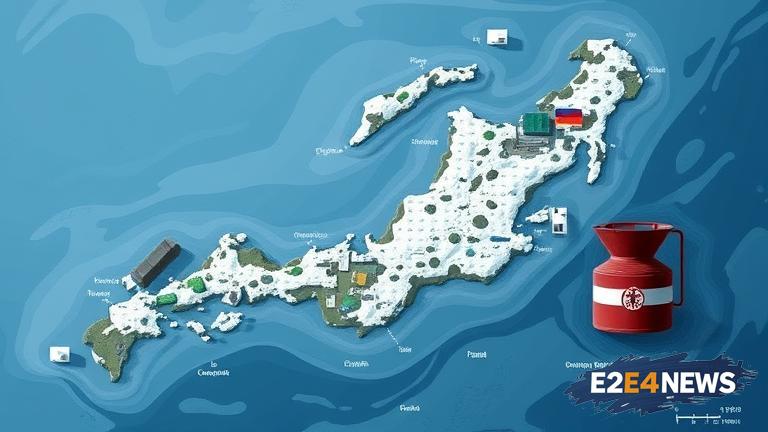A critical fuel shortage has befallen the Kuril Islands, a remote archipelago in Russia’s Far East, with reports indicating that the islands have completely run out of gasoline. The shortage has been attributed to a combination of factors, including logistical challenges and a lack of investment in the region’s infrastructure. As a result, residents are facing significant difficulties in accessing basic necessities, such as food and healthcare. The situation has been exacerbated by the islands’ remote location, which makes it difficult to transport goods and supplies. The Russian government has been criticized for its handling of the crisis, with many arguing that more should be done to support the region. The Kuril Islands are a strategically important location, with significant economic and military value. However, the region has long been neglected, with inadequate investment in infrastructure and services. The fuel shortage has highlighted the need for urgent action to address the region’s chronic underdevelopment. Residents are calling for increased support from the government, including emergency fuel deliveries and investment in the region’s infrastructure. The crisis has also raised concerns about the impact on the local economy, with many businesses struggling to operate without access to fuel. The Russian government has announced plans to increase support for the region, including the deployment of emergency fuel supplies. However, many are skeptical about the effectiveness of these measures, given the region’s history of neglect. The Kuril Islands are home to a significant military presence, with Russia maintaining a number of bases and installations in the region. The fuel shortage has raised concerns about the impact on national security, with some arguing that the crisis could compromise the country’s military capabilities. The Russian government has sought to downplay the significance of the crisis, with officials arguing that the situation is under control. However, many experts disagree, arguing that the crisis is a symptom of deeper structural problems in the region. The Kuril Islands have a complex history, with the region being disputed by Japan and Russia. The fuel shortage has raised concerns about the impact on relations between the two countries, with some arguing that the crisis could exacerbate tensions. The Russian government has announced plans to increase investment in the region, including the development of new infrastructure and services. However, many are skeptical about the effectiveness of these measures, given the region’s history of neglect. The fuel shortage has highlighted the need for urgent action to address the region’s chronic underdevelopment, with many calling for increased support from the government. The crisis has also raised concerns about the impact on the local environment, with some arguing that the shortage could lead to increased pollution and environmental degradation. The Russian government has announced plans to increase support for the region, including the deployment of emergency fuel supplies and investment in the region’s infrastructure. However, many are skeptical about the effectiveness of these measures, given the region’s history of neglect. The Kuril Islands are a unique and fragile ecosystem, with a significant biodiversity. The fuel shortage has raised concerns about the impact on the local wildlife, with some arguing that the crisis could have devastating consequences for the region’s ecosystem. The Russian government has announced plans to increase support for the region, including the development of new infrastructure and services. However, many are skeptical about the effectiveness of these measures, given the region’s history of neglect. The fuel shortage has highlighted the need for urgent action to address the region’s chronic underdevelopment, with many calling for increased support from the government. The crisis has also raised concerns about the impact on the local community, with some arguing that the shortage could lead to increased poverty and social inequality. The Russian government has announced plans to increase support for the region, including the deployment of emergency fuel supplies and investment in the region’s infrastructure. However, many are skeptical about the effectiveness of these measures, given the region’s history of neglect.
